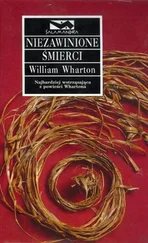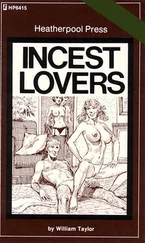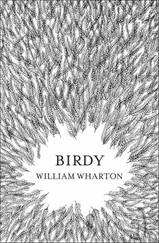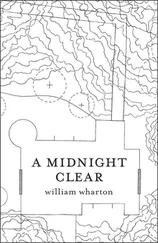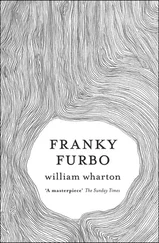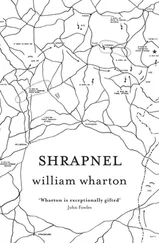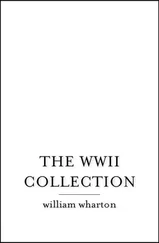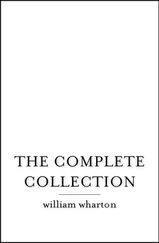The old blind lady has been gathering her tools together and fastening them. She puts away her small sacks of feed, then pulls out a larger sack and strews some grains on the ground in front of her. She turns to me.
‘This way, they do not notice I am leaving and it is not so hard for them. Tell me, are there any small birds there with the pigeons?’
I look and there are sparrows darting in front of the pigeons, getting their share and more.
‘Yes, there are sparrows.’
‘Are any of the pigeons fighting them for the food?’
I look. Sure enough, they aren’t, they’re pushing each other to get to the grain but there is no pecking or fighting among themselves or against the small sparrows.
‘No. There’s no fighting. They allow the small birds to take what they want.’
‘You see, monsieur, the pigeons have much to teach us.’
With that, she picks up her cane, stands, and reaches out her hand toward me. We shake hands.
‘Will you be here tomorrow to work on your painting?’
‘Yes, if it isn’t raining or too cold.’
She lifts her head, turning it left and right like a pointer trying to get a scent.
‘No, tomorrow will be like today. I hope to see you then.’
I watch as she turns and walks away quickly, using her cane only occasionally, She said she’d ‘see’ me. It must be strange to be blind and still use the terms of seeing.
I go back to my painting. I block in where I’m going to paint her. I must consult her to see if it’s all right. There’s no way she could ever know, but it seems the right thing to do. It’s the kind of lesson I’m learning, slowly but surely. Something that might seem perfectly right and logical to one person can be a terrible violation to another; we’re all different. I wish I’d learned this earlier. I’ll ask tomorrow before I start painting her in seriously.
I work away at the underpainting for several hours. Usually I go more quickly, but in the few oil paintings I’ve tried so far, I’ve discovered that faults of drawing or composition which might be acceptable, even invisible, early on become glaring as the painting comes to conclusion. I’m trying to eliminate all such awkwardness.
Still, I can already feel I’m going to have the same trouble I’ve had with the others. Even if I manage the drawing right, not only accurate, but well designed; even if the selection of forms and colors for the underpainting seems vital, appropriate, there’s no excitement in the painting. I don’t seem able to incorporate, build into my paintings, the strong emotional feelings I have about my subject, about Paris, about life itself. There’s something missing, a wall of fear, of timidity, between me and what I want to say. Also, there’s an arrogance. I don’t seem willing to let go, to fall into the painting, become part of it. Perhaps it will come with practice, when I’m less concerned with technical problems; I hope so.
At about five o’clock, the light is too far gone. I feel the underpainting is finished and a night of drying will get the surface just right for my impasto tomorrow. I’ll start with the sky, make a stab at those constantly changing, magic clouds against the blending blue of the sky. It’s where my cerulean blue should come in handy.
Someday, I’d like to try wet-in-wet, go right from the underpainting to the impasto with no drying time between. Rembrandt did it and so did some other great Dutch painters, some of the Italians, too.
I pack up my box, hang the painting on the back of it, and start my walk home. I could take the number 86 bus almost directly to where I’m living, but I like walking in Paris. It’s what kept me together over the worst days. Also, at this time, the buses will be filled and it’s easy to smear a painting on someone, even if it’s only underpainting.
I walk down boulevard Saint-Germain, across the Pont Sully, up Henri IV to the Bastille. I go along Roquette and cut off down a narrow street called rue Keller. It’s about a forty-five-minute walk. The painting box is light enough so I hardly notice it. The walking helps keep me in shape, too. I’ll really enjoy my dinner tonight.
I come onto the passage des Taillandiers, the street where I live. It’s still early, so the buzzer to the door isn’t set. I slip past the loge de concierge without any trouble. I know the name of a painter in the building, and if the concierge ever asks anything, I’ve decided to say I’m going to visit him. Actually I’ve never met this artist and hope I never do.
I go up Escalier C, the least used of the staircases. At this time, most of the artisans, furniture builders, and carpenters have all gone home. I, quietly, but with a casual step, as if I belong here, jiggling a meaningless ring of keys in my hands, go to the very top, past the last legitimate door, up one more flight, and through a heavy fire door into the dark attic, le grenier.
There’s no light up here. I find my hidden flashlight, flick it on, and feel my way down the narrow hallway, between the individual attic rooms, to the one I consider my own, although I’m only a squatter. I reach for the key hidden over the door and let myself in.
The smell of old dust, of dry stored wood coated with sawdust, of stale air, is home to me. I stand my box with the painting at the far end of the room. There’s a skylight in the slanted ceiling with a metal brace. I push it open to air the room. I block the cracks in the door with an old curtain so no light will show through, and light two candles. I unhook my painting from the box and put it between the two candles. I look around and see nothing’s been disturbed. I think it’s been years since anyone other than me has come into this room. I don’t even know which of the carpenters’ workshops below uses it for storage.
I pull down my piece of foam rubber and my sleeping bag from up in the rafters where I hide them during the day. I get out my tiny butane cooker and one of the sealed one-liter mason jars with my supply of cooked vegetables. I take out my bottle of wine and the half a baguette I hoard over two days. I only eat once a day and I’m really hungry. I was about ready to snitch some of those grains from the pigeons.
I turn on the cooker and warm up my Mulligan-type stew in an old pot. I pull my spoon from behind a supporting post where I store it and pour myself the one small glass of wine I allow myself each day. The six-franc bottle of wine I drink has to last a week. Aside from the costs of my painting materials, this wine, the butane, my baguettes, and the candles are the bulk of my expenditures.
I sit in the gathering dusk with the candles for light and slowly eat my portion of stew. I, who all my life have been a meat and potatoes man, have, perforce, become a vegetarian. At first I bemoaned the fact, but now, after several months, I sometimes think I couldn’t face a steak, or even a well-done hamburger. I feel a lot better, too. But that could be from the running.
I look at the painting. In this light, away from the subject matter, it looks better. I probably won’t paint in my sleep tonight. The whole idea of me painting oil paintings, considering everything, especially the cost, is an insanity; but I’m hooked. I don’t know how I’ll ever sell these things for enough money to pay back the cost of paint and canvas, let alone make a few francs. If I have to return to drawing and watercolor again, I’ll feel as if my legs have been chopped off. But I’ll do it, to keep my freedom.
I bought the paint box for a song. It’s a genuine collapsible easel made with hardwood, dovetail joints, brass fittings. This box has to be at least fifty years old, older than I am. It doesn’t have a metal inner liner as the new ones do, nor a second drawer underneath, but it’s sturdy and light. It’s constructed so the legs fold out and can be tightened to give strength. It’s all there, storage for paints, palette, brushes, turp, varnish, oil, paint cloths, and it opens to hold the canvas, any canvas, up to size 25F. Also, it’s smeared with paint and the air of authenticity. Just going out to paint with it gives me a thrill. I walk along feeling in tune with Monet, Pissarro, Cézanne, Sisley, a real painter in the field.
Читать дальше

